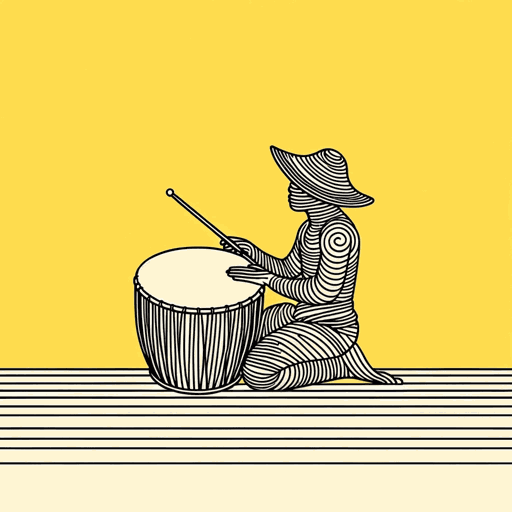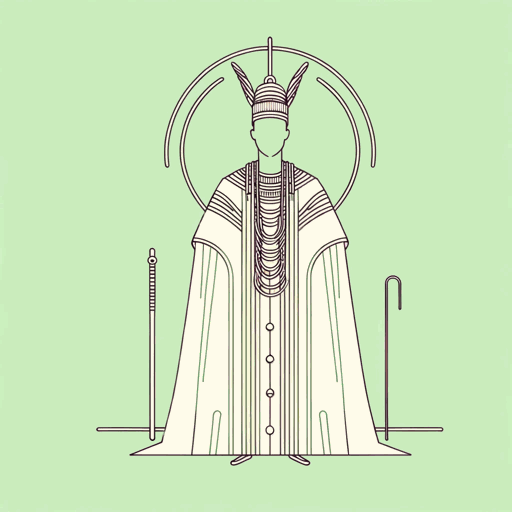27 pages • 54 minutes read
Wole SoyinkaThe Lion and the Jewel
Fiction | Play | Adult | Published in 1962A modern alternative to SparkNotes and CliffsNotes, SuperSummary offers high-quality Study Guides with detailed chapter summaries and analysis of major themes, characters, and more.
Summary and Study Guide
Overview
“The Lion and the Jewel” is a three-act play written by Nigerian playwright Wole Soyinka. The play fuses modern and traditional elements of storytelling, including Yoruban song and dance, to convey a message both comical and serious. The play’s characters are often touted as over-the-top in their behavior, lending a comical aspect to the dialogue and the characters’ individual actions. The message conveyed despite the comedic effects, however, focuses on the role of modern and traditional ways of viewing the world, and how these views may or may not be served better by working together for the common goal of human progress.
The play’s three main characters are Sidi, Lakunle and Baroka. Sidi is a young, beautiful village girl who is known as the “village belle.” She is the “jewel” referenced in the play’s title. Sidi is pursued as a marriage prospect by the other two main characters, Lakunle and Baroka. Lakunle is a schoolmaster who, though also young, dresses and acts like an “old soul.” Lakunle has adopted the dress and speech patterns of Western countries, and believes that the only way for their village of Ilujinle to progress is to modernize, like Lagos and other “forward-thinking” places. Lakunle is considered the village idiot because of his fancy words and the way he carries himself. Though Lakunle has asked Sidi to marry him, she has refused him once already. Baroka is known as the Bale of Ilujinle, the village chief, and is the “lion” of the play’s title. Baroka is old and wise, though a womanizer and untrustworthy. Lakunle describes him as a “fox,” a sneaky individual who uses cunning to bring about a desired end. Baroka’s cunning is pitted against Lakunle’s modernized wooing to see what Sidi will choose: a modern life as a “new woman” or a traditional role as the Bale’s head wife.
The first act, “Morning,” introduces Sidi as the beautiful village belle. Lakunle rushes to her side one morning and explains to a bewildered and annoyed Sidi why she should act more like the “new women” in Lagos, meaning that she should shrug off her traditional roles and become modernized. Sidi dismisses Lakunle’s taunts and his entreaties for marriage, reminding him that he is the village idiot and that he will not pay the bride-price she has asked. Lakunle refuses to pay the bride-price because he views this marriage practice as primitive. The two are soon interrupted by villagers who have come to bring Sidi the news that the foreigner has returned to Ilujinle. The foreigner is a drunkard from Lagos who took pictures of Sidi and swore to make her famous. He has returned with a magazine containing her pictures. The villagers reenact the foreigner’s previous arrival with song and dance, and the Bale himself appears and takes part. When the villagers rush off to find the foreigner, the Bale takes out the magazine of Sidi’s pictures and comments that it has been a while since he has taken a wife.
The second act, “Noon,” introduces Sadiku, the Bale’s head wife. Sadiku tells Sidi that the Bale wants to marry her and that she should accept. Sidi dismisses the proposal, as she does not want to become yet another wife to the Bale. She also makes fun of the Bale’s age. Lakunle then warns Sidi of the Bale’s trickery and cunning by relating a tale of how Baroka bribed railroad employees so that the railroad—the one thing that might have modernized Ilujinle—would not ruin the Bale’s traditional way of living. Sadiku later tells Baroka of Sidi’s refusal, and he informs Sadiku that he is impotent. The third and final act, “Night,” finds Sidi attempting to taunt the Bale for his impotence by visiting his house and engaging him in a game of wits through words. It turns out that the Bale is just as cunning as Sidi has been warned, and Sidi finds herself outmatched. The Bale offers Sidi a chance to show her beauty to even more people, something she cannot refuse. She realizes he is old but wise, and the two make love. Sidi later discovers that the Bale has tricked her. He is not impotent after all. Despite this betrayal, Sidi decides to marry the Bale, not Lakunle, as the Bale is more experienced in life and love.
Though the play offers many comical plot twists, and is rife with laughable characters and actions, the central themes in the play address such weighty matters as tradition versus modernity, masculinity versus femininity, the playfulness of language, and age versus youth. The villagers of Ilujinle must deal with modernization, which might mean losing their way of life and living without character. The Bale thinks there is nothing worse than modernizing and losing identity by becoming like everyone else. Lakunle thinks there is nothing worse than being left behind when the rest of the world is progressing. Sidi wants to decide what is best for herself, though she is more inclined to traditionalism. Soyinka’s play does not choose sides, but it does suggest that, despite there being clear sides, the best solution might be working together to bring about true progress and to enrich identity rather than attempting to erase it.
Related Titles
By Wole Soyinka





